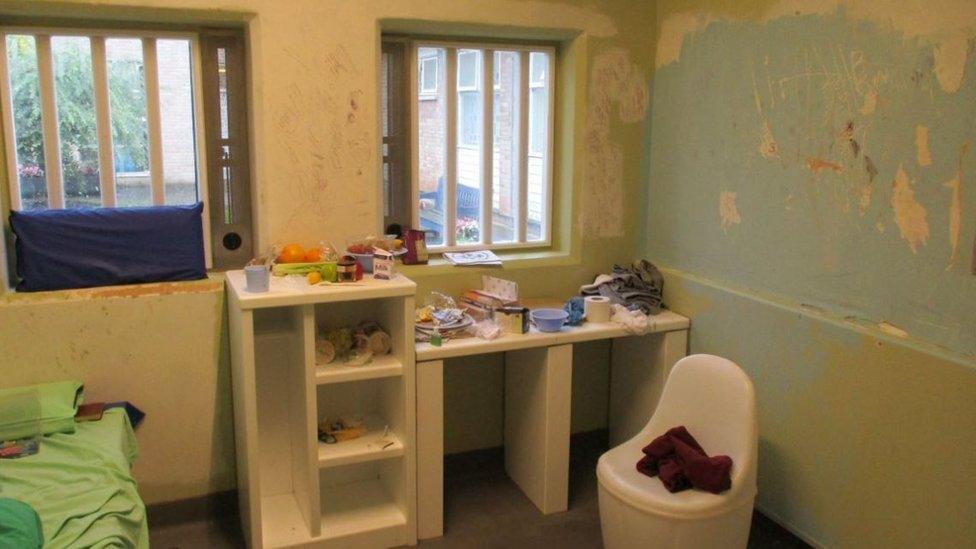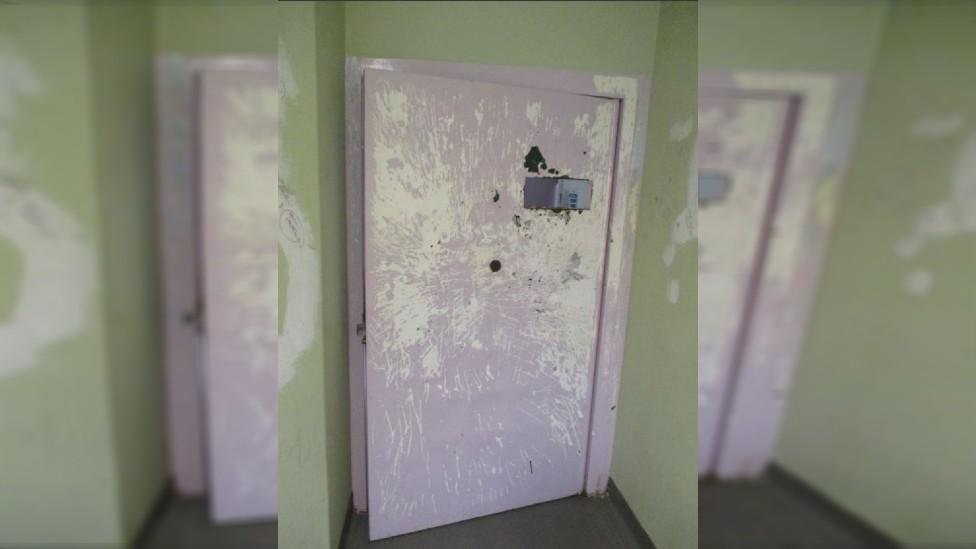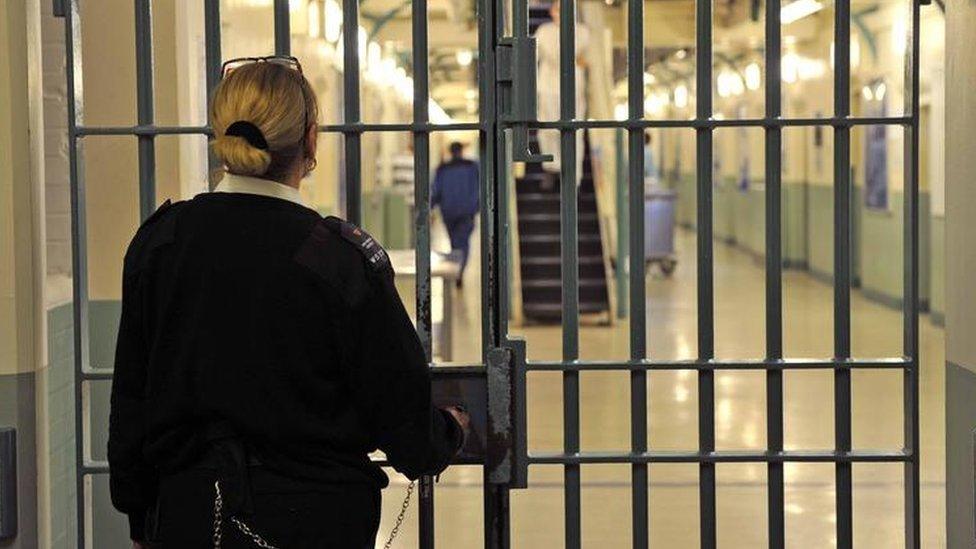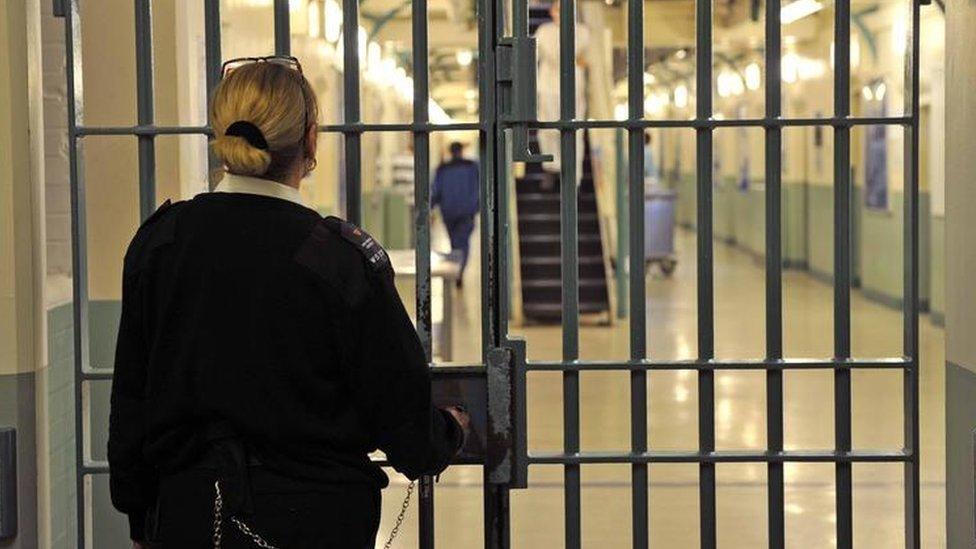HMP Eastwood Park: Report finds prison has highest self-harm rate in England and Wales
- Published

Inspectors visited HMP Eastwood Park in September
A prison in South Gloucestershire has the highest rate of self-harm of all women's jails across England and Wales.
HM Inspectorate of Prisons said it had found high levels of self-harm at HMP Eastwood Park during a visit for a review of progress in September.
It also raised "significant concerns" over a 31% increase in staff using physical force against women who self-harmed or threatened to self-harm.
An MoJ spokesperson said prison staff are increasing support for inmates.
They added: "We take the safety of women in custody incredibly seriously with £14 million extra investment and this report notes incidents of self-harm at HMP Eastwood Park are coming down.
"Many women in custody suffer from mental health issues which is why we continue to work closely with healthcare partners to increase the support available for those at risk."
The prison and young offender institution, which held 353 prisoners at the time of the visit, was last inspected in October 2022, where it was given the lowest grade for safety.
Although the prison is said to have since made "good or reasonable progress in most areas of identified concern", the progress on using physical force was rated as "insufficient" and remained very high compared with other institutions.
Inspectors found that some situations were de-escalated by staff, but the number of times force was used to manage women in crisis was high, particularly when women self-harm or threaten to self-harm.
Some inmates described "a lack of care underpinned by a limited understanding of or empathy about self-harm."

Concerns were raised over the levels of self-harm and physical force used against inmates
About 40% of cases involved low-level techniques, such as guiding holds to promote compliance, but other instances involved full control and restraint techniques.
Over the last eight months, inspectors recorded 22 instances where force was used to strip women of all their clothing to replace it with anti-rip garments designed with material that would reduce the likelihood of making ligatures.
Inspectors were not confident that force was always used as a last resort, and staff acted too quickly with too little evidence of persuasion and negotiation.
They were also concerned that health care professionals failed to challenge the use of inappropriate or unsafe techniques.

Inspectors said the prison's leaders were committed to making improvements
Many women described feelings of frustration because of difficulties in getting very basic requests dealt with, which resulted in self-harm.
The report also found that acutely mentally ill women, who could potentially have been diverted from custody to a care setting, were still being sent to prison, meaning staff and the mental health team were regularly left to support inmates with extremely challenging needs.
Chief Inspector of Prisons, Charlie Taylor, said although the rate of self-harm was the highest in the women's prison system, it had started to show signs of reducing.
He said improved staffing of residential units meant better time spent out of cells, there was better support to help women maintain contact with their children and families, and that managers were committed to improving the prison's performance.

Follow BBC West on Facebook, external, X, external and Instagram, external. Send your story ideas to: bristol@bbc.co.uk , external
- Published3 February 2023

- Published23 February 2021

- Published18 March 2020

- Published28 August 2019
